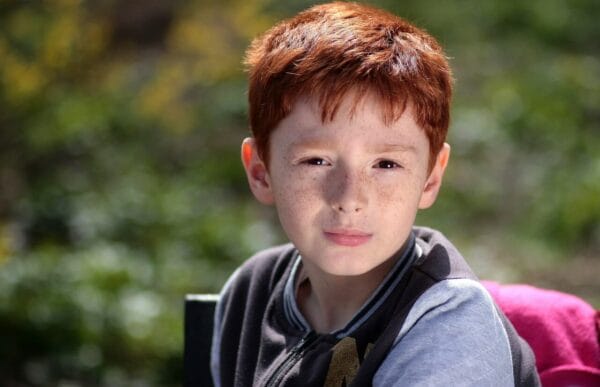
Will my Child's Anxiety Go Away?
Your child is struggling with worries and fears, likely waxing and waning over time. You wonder if your child will outgrow this. Will your child’s anxiety go away on it’s own? Is it really a “mental health condition” or something you can work on at home. Don’t all children have worries and fears? Yes, absolutely all children experience some anxiety or worry at times. Sometimes, these anxieties will resolve with time and exposure to the fear. At other times, the worries and fears can continue to grow and your child may begin to avoid certain activities; struggle to sleep, eat, or do school work, and may even struggle socially with peers due to anxiety. Read on for some questions that might help you determine whether it’s time to get more support for your child’s anxiety.
How often is your child expressing worries, fear or anxiety?
All children go through periods where something worries them. These struggles are important for them to build confidence and a sense of competence in tackling challenges. However, if your child is discussing anxiety, worries, or fears on a regular basis, it might be time to talk about some tools to address the anxiety. Periodic worries that are overcome with pride and a sense of accomplishment are healthy for children. However, if your child overcomes one fear or worry only to discover a new one next week, this level of anxiety may result in unnecessary distress.
Is your child avoiding experiences or activities in response to anxiety?
Avoidance is often a sign of escalating anxiety. Does your child put off schoolwork or studying for days because of anxiety about their abilities? Does your child avoid sports or social events because of worries and fears? In addition, sometimes parents avoid activities to protect the child from anxiety. Do you find yourself not attending parties or social events because you know your child will be too anxious? Do you change plans in response to your child’s fears? If you are answering yes to any questions about avoidance, consider exploring treatment for child anxiety. Avoidance can continue to escalate as the anxiety is temporarily relieved, but increases again shortly after, leading to a desire to avoid even more things.
Does your child express physical symptoms in response to anxiety?
Rapid breathing, fast heartbeat, sweating, upset stomach, headaches, nausea, dizziness – these can all be physical symptoms of anxiety in children. In fact, many children will notice the physical symptoms first and may not realize they are feeling anxious at all. If physical symptoms are arising with no medical cause, especially if you notice those symptoms around experiences or activities that may cause anxiety, therapy for child anxiety may be helpful.
Do you find yourself frustrated with or upset by your child’s anxiety?
You find yourself exhausted by your child’s need for reassurance, saddened by your child’s inability to enjoy life, or frustrated by the constant worries. If you can’t seem to help your child and the fears keep coming or keep escalating, child therapy may be helpful. Your therapist will work with you and your child to implement a plan to tackle the anxiety and bring relief. You aren’t to blame for your child’s anxiety. You are the best tool to help your child find relief. However, many parents engage in behaviors that appear helpful on the surface but actually serve to increase and intensify anxiety in the long term. This is when a professional therapist can be incredibly helpful, creating a plan to tackle anxiety and helping you implement steps at home to
What do I do now?
If your child has only recently shown a new fear or worry but is otherwise doing well in school and at home, it’s okay to take a “wait and see” approach. Offer support and monitor for anxiety that intensifies, lasts longer than one to two weeks, or interferes with functioning. If you answered “yes” to any of the questions above, it’s probably time to explore therapy for your child’s anxiety. We can help your child develop coping skills that will last a lifetime. Waiting until the problem is much larger might mean longer and more intense treatment. By getting into child therapy early and with parental support, your child can make quick progress toward greater resiliency and better coping.
Call us today for a free 15 minute phone consultation. To learn more about Child Therapy and how Skylands Wellness can help, click here.
